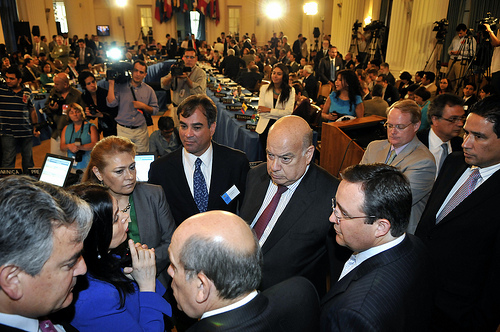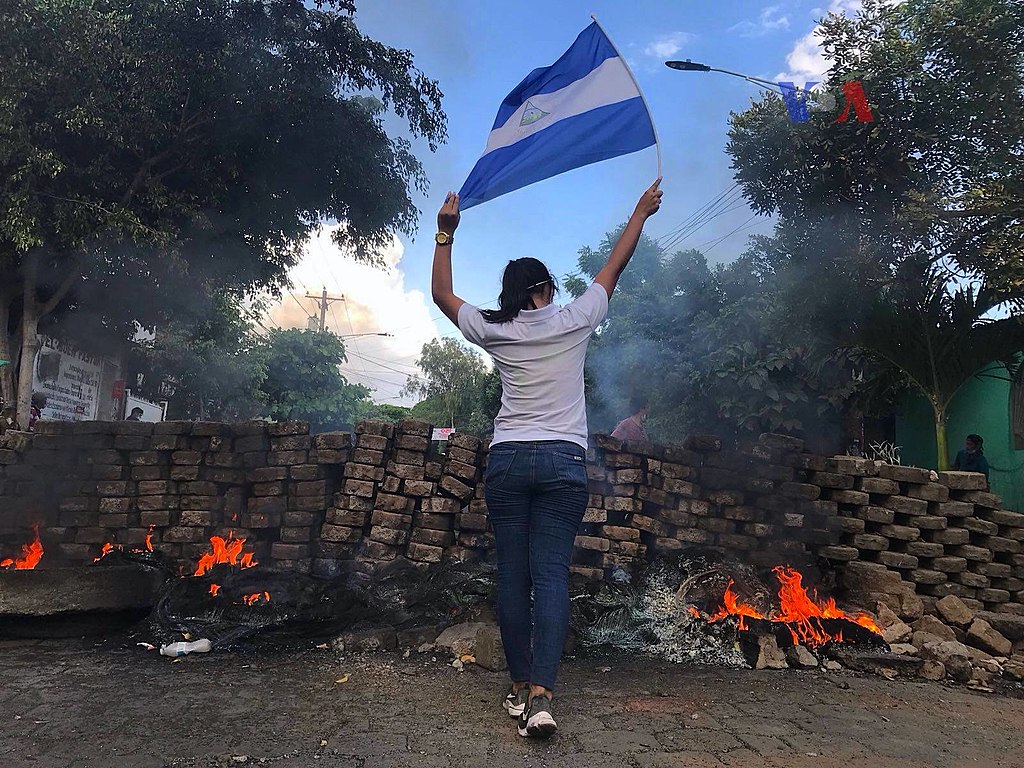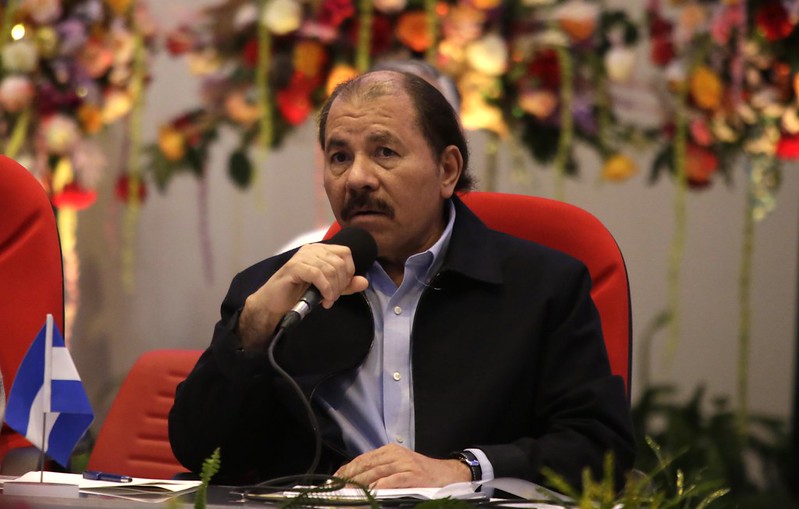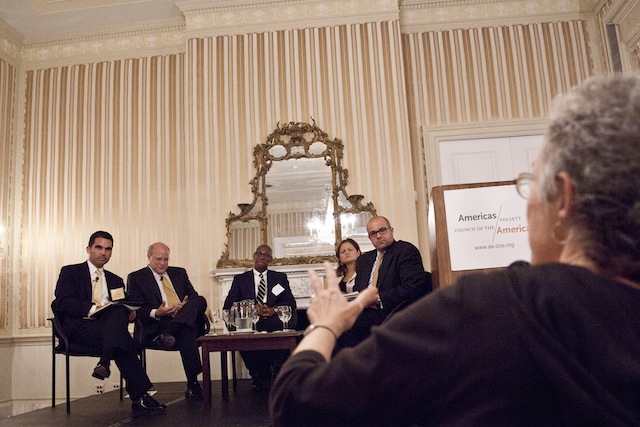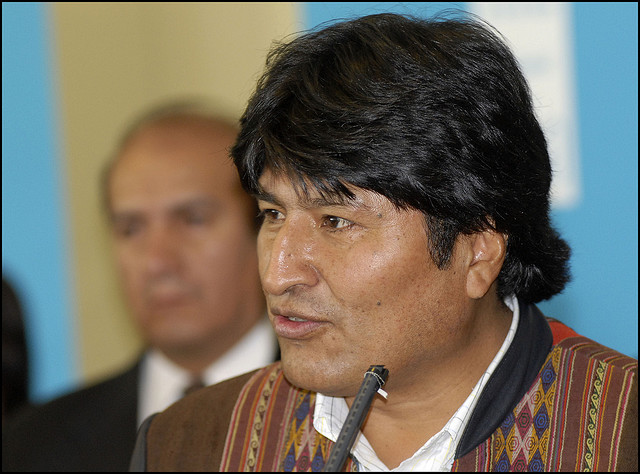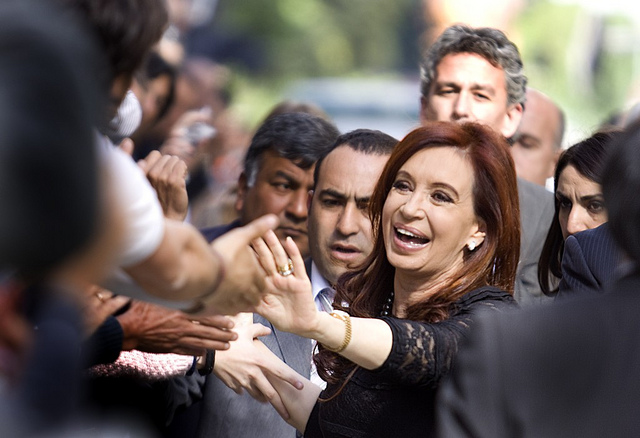
Argentina, Latin America: Week in Review
Argentina: Cristina Fernández de Kirchner Wins Landslide Election
October 24, 2011 By Staff
Today in Latin America
Top Story — Cristina Fernández de Kirchner won a second term as Argentina’s president Sunday in a landslide election. She sailed to victory by the largest margin in the country’s history since returning to democracy in 1983, with 53 percent of the votes after 24 percent of polling stations had been tallied nationwide. Fernández Kirchner’s nearest challenger, socialist candidate Hermes Binner, garnered just 17 percent. By evening, Argentina’s Interior Minister Florencio Randazzo predicted the president’s vote share would rise as votes from her stronghold in Buenos Aires had still yet to be counted. Thousands of supporters rallied in the capital’s famed Plaza de Mayo in support of the only woman to be re-elected president in Latin America. Fernández de Kirchner appealed to the memory of her husband, former President Néstor Kirchner, who died almost a year ago. “In this world where they have criticized us so forcefully, all this makes me feel very proud, that we’re on the right track,” Fernández de Kirchner said, while voting in her husband’s hometown of Rio Gallegos in Patagonia. Kirchner “would be very content,” she added.
Headlines from the Western Hemisphere
North America
- A 15-year-old boy who ran a drug gang on the Mexican resort island of Isla Mujeres confessed to killing two women, who reportedly worked as drug dealers.
- Mexican President Felipe Calderón signed a piece of legislation tightening the country’s regulations on day care centers.
- The U.S. woman’s softball team beat Canada to win the gold medal at the Pan American Games in Guadalajara, Mexico.
Caribbean
- A majority of Cubans feel positively about the country’s economic reforms, according to a study conducted by Freedom House.
- The World Health Organization said Friday it expected the number of cholera cases in Haiti to reach 500,000 by the end of the year.
- The Dominican Republic’s Central Bank says growth has been slower and inflation higher than expected this year.
- Puerto Rican Gov. Luis Fortuño has been named the next president of the Council of State Governments.
Central America
- Guatemala was one of the four countries selected to be a non-permanent member of the United Nations Security Council.
- El Salvador’s President Mauricio Funes wants the U.S. to halt deportations of Salvadorans and extend the “temporary protected status” program because of the widespread damage caused by heavy rains in the Central American country.
- A tropical depression formed off the coasts of Nicaragua and Costa Rica over the weekend and is likely to become Tropical Storm Rina as it skirts the Honduran coastline
Andes
- The Colombian government said that ten soldiers were allegedly killed by FARC rebels in northeastern Colombia on Saturday, two days after ten other soldiers were killed in Tumaco.
- A “peace community” in Colombia known as San José de Apartado is one of three finalists for the Sakharov human rights prize, which will be declared on Thursday.
- Venezuelan President Hugo Chávez’s medical team announced that his health was “absolutely satisfactory” after undergoing four rounds of chemotherapy in Cuba and Venezuela.
Southern Cone
- Researchers discovered human remains buried at a military barrack in Toledo, Uruguay, raising suspicions that the victim was a political prisoner killed during the country’s 1973-1985 military dictatorship.
- Brazil’s O Globo newspaper reported that corrupt politicians embezzled a total of $37.7 billion in state funds from 2003-2010, though the magazine Veja put the amount closer to $400 billion in the last decade.
- A Brazilian congressman proposed that Brazil revise its laws governing foreign ownership of domestic airline companies.

